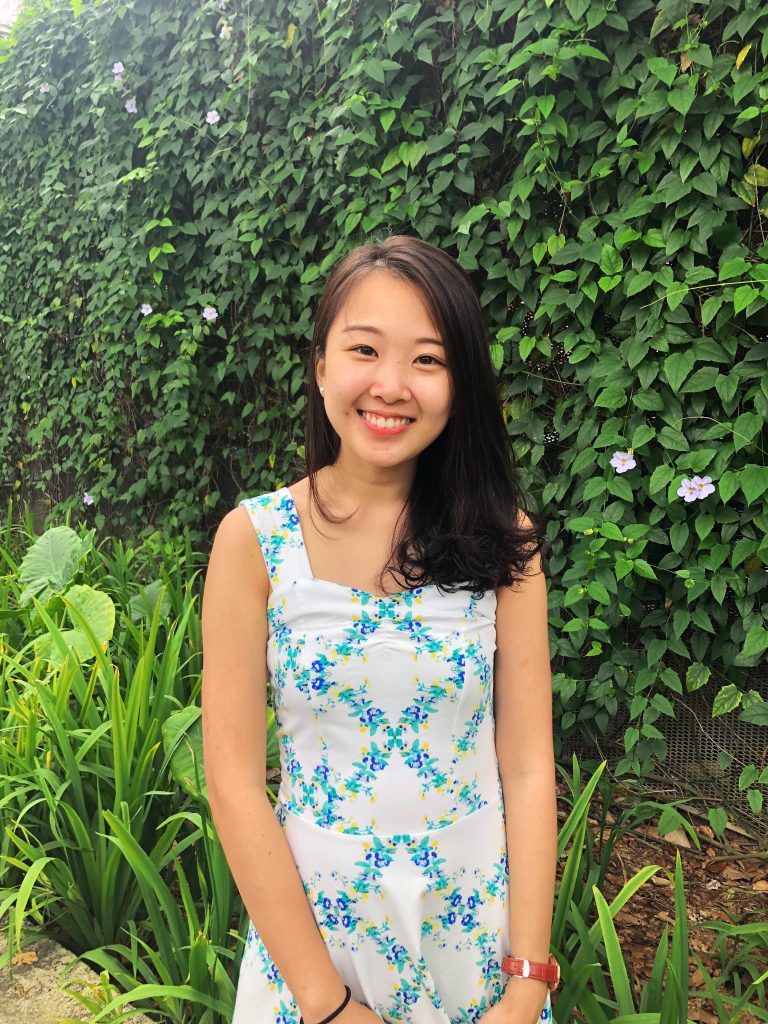
Meet Isabel Phua, 25, Founder of Migrant x Me, a social enterprise that provides public education on and raises awareness for issues facing Singapore’s migrant worker community. Among their initiatives are experiential learning journeys that offer Singaporeans the opportunity to visit the workers at their housing, and meet and speak with them. At these exchanges, individuals across both groups get to build new friendships and share personal stories. ISHAN SINGH catches up with Isabel, who started this initiative, to find out what sparked her interest in this cause, and learn why it’s so important to interact with people across different cultures.
What is Migrant x Me about in a nutshell?
We are a social enterprise that aims to generate more awareness about challenges faced by low-wage migrant workers in Singapore, and to increase cultural integration between both the local and migrant communities. We additionally partner with SG Accident Help Centre, which provides holistic care, education and training for the workers, as well as dormitories including Sungei Tengah Lodge, to host our learning journeys. These learning journeys are open to the general public, but we are also working with schools to introduce the programme to their curriculums.
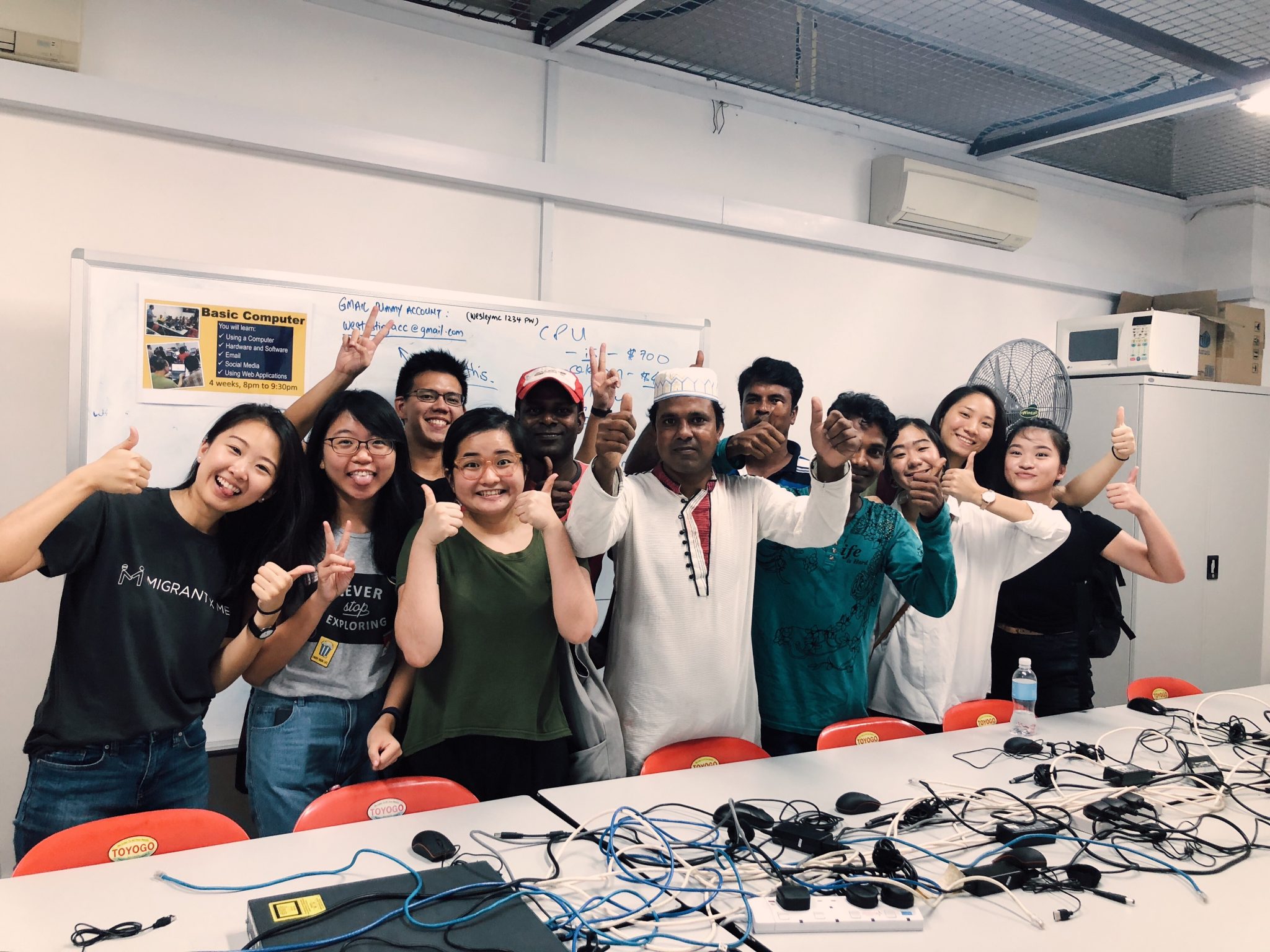
Speaking of these learning journeys, what can we expect from a typical session?
Each learning journey includes the following: a guided walk in our partner dormitory, a crash course into the challenges migrant workers face, breakout sessions with the workers—with the workers themselves leading the conversations—and a dormitory food tasting.
What inspired you to start Migrant x Me?
Prior to establishing this initiative, I was already actively involved in the migrant worker space. In the past five years, I have been befriending them and even visiting their families back to their home countries (Bangladesh and India). Along the way, I received invitations to speak at workshops on migrant worker issues, and fielded many questions from Singaporeans who were either curious about the topic, or who wanted to find out how they too could get involved. That’s when I realised that public awareness about the migrant worker landscape is low, and saw the need to provide a platform for both education and volunteerism.
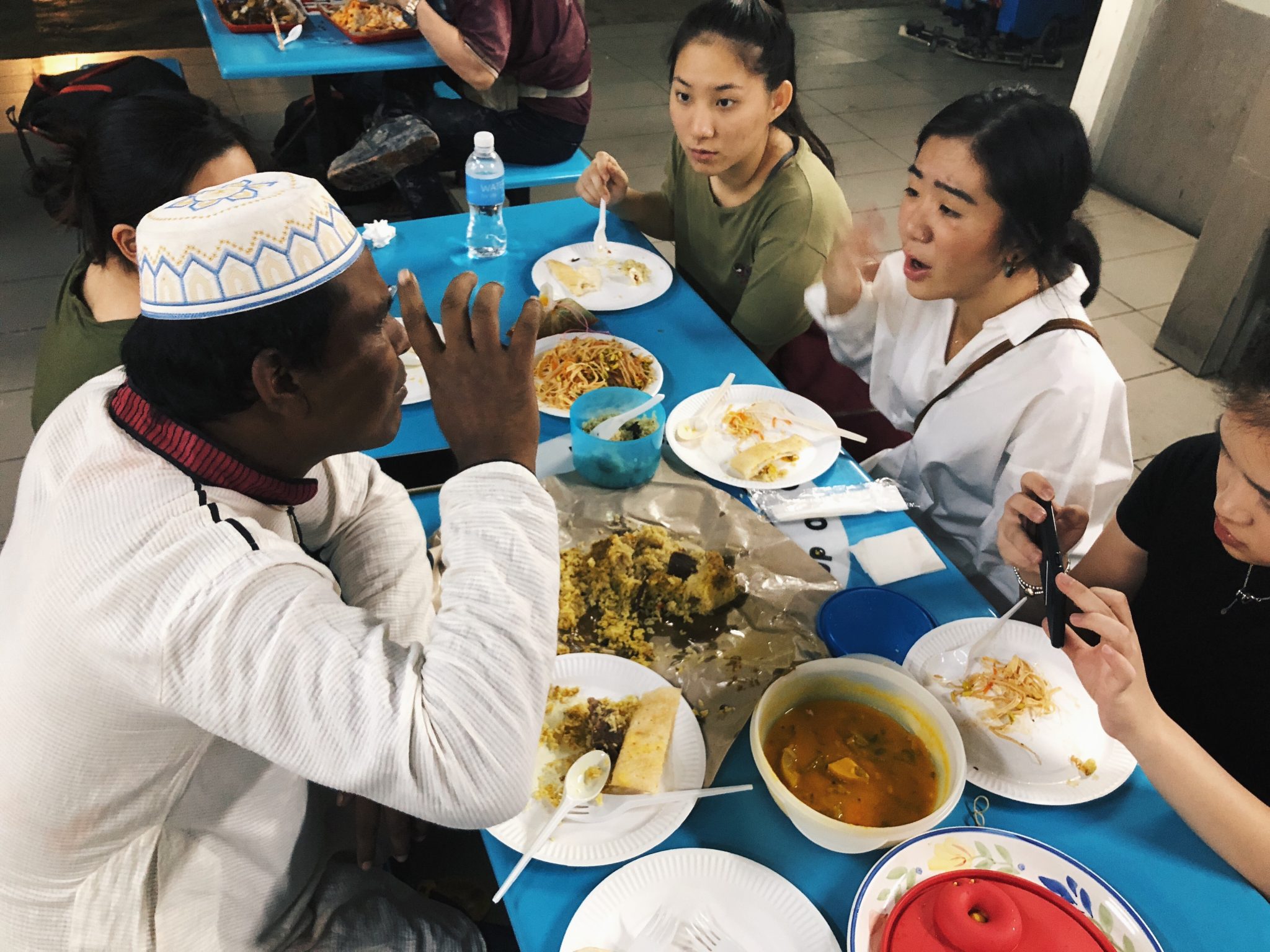
In your experience, what are some common challenges of migrant workers here?
There are several, such as salary disputes and poor living conditions. But the issue that surfaces the most in my conversations with the workers is this so-called “limbo period” they can find themselves in when they sustain serious work-related injuries. In cases involving extended medical leave and a higher compensation than what is insured, the treatment and compensation process can become contentious, and some workers face repatriation if their employers cancel their Work Permits before the claims process is completed. Throughout the entire “limbo” period, the worker is not allowed to work, and many with whom I spoke described this as a lonely and depressing time. Thus, hoping to meaningfully engage them and take their minds off their situation, I have been involving such workers in Migrant x Me’s learning journeys. The speaking sessions are opportunities for them to freely and safely share their life stories with Singaporeans over a meal, get to know more about Singapore’s culture, and raise awareness on relevant issues affecting the migrant worker community.
Misconceptions can abound when we don’t know enough about another person and thus form our own assumptions. Do you hope that closer interaction between our communities will help debunk some negative stereotypes Singaporeans have about migrant workers and vice versa?
Impressions are formed based on stories we read in the media and a lack of cross-cultural understanding. If we read news articles about rape cases in India or observe certain people from mainland China “speaking loudly” or behaving in an “uncouth” manner, the stereotypes are only reinforced. But I think it’s important to realise there are good and bad apples in any community. In any society—Singapore included—there will be individuals that display good character, and others that don’t. That’s why it’s so important to interact with people from other backgrounds and cultures, understand their cultures and practices, and connect with them on a personal level. While there may be differences, the number of similarities might surprise you.
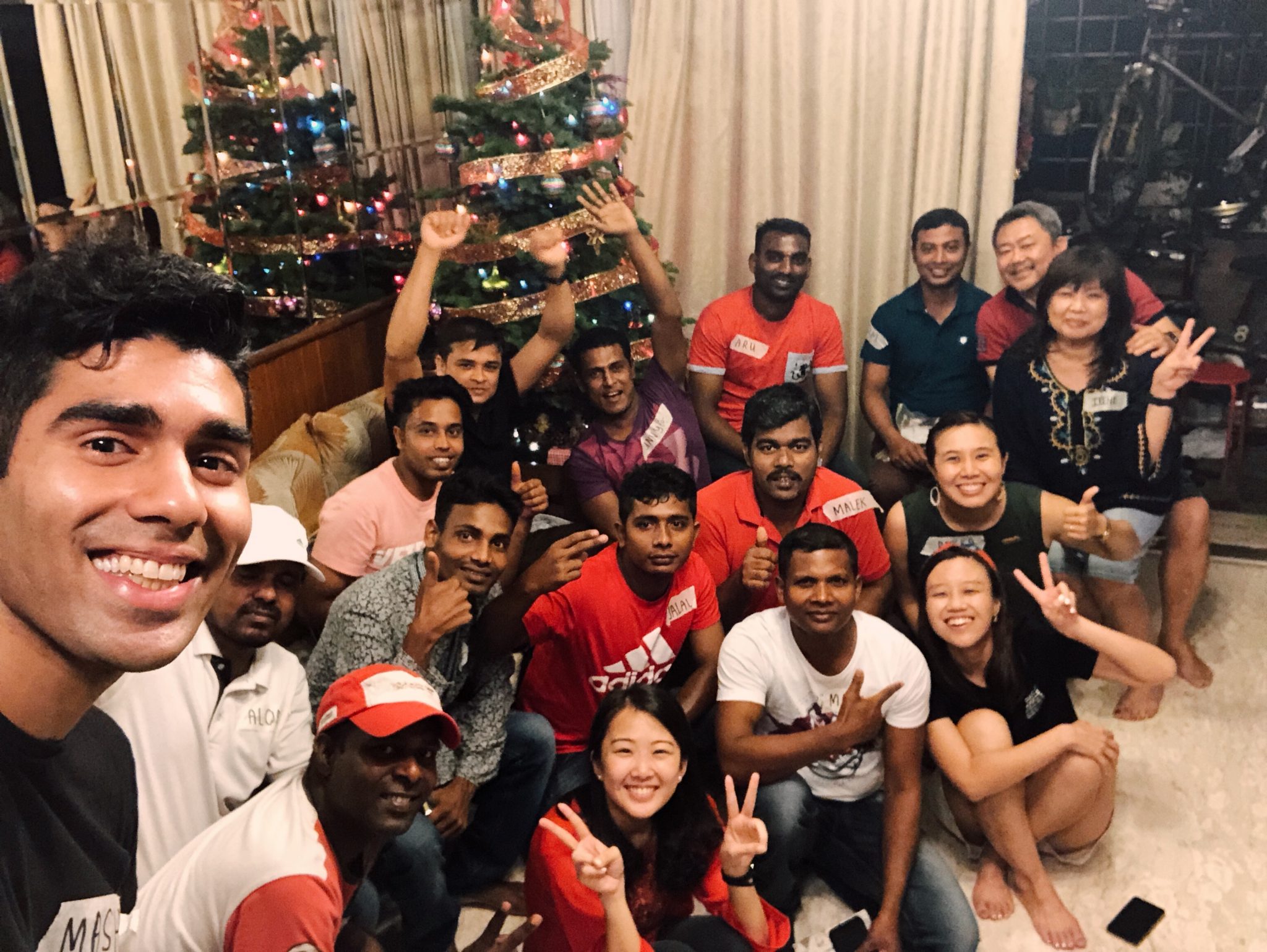
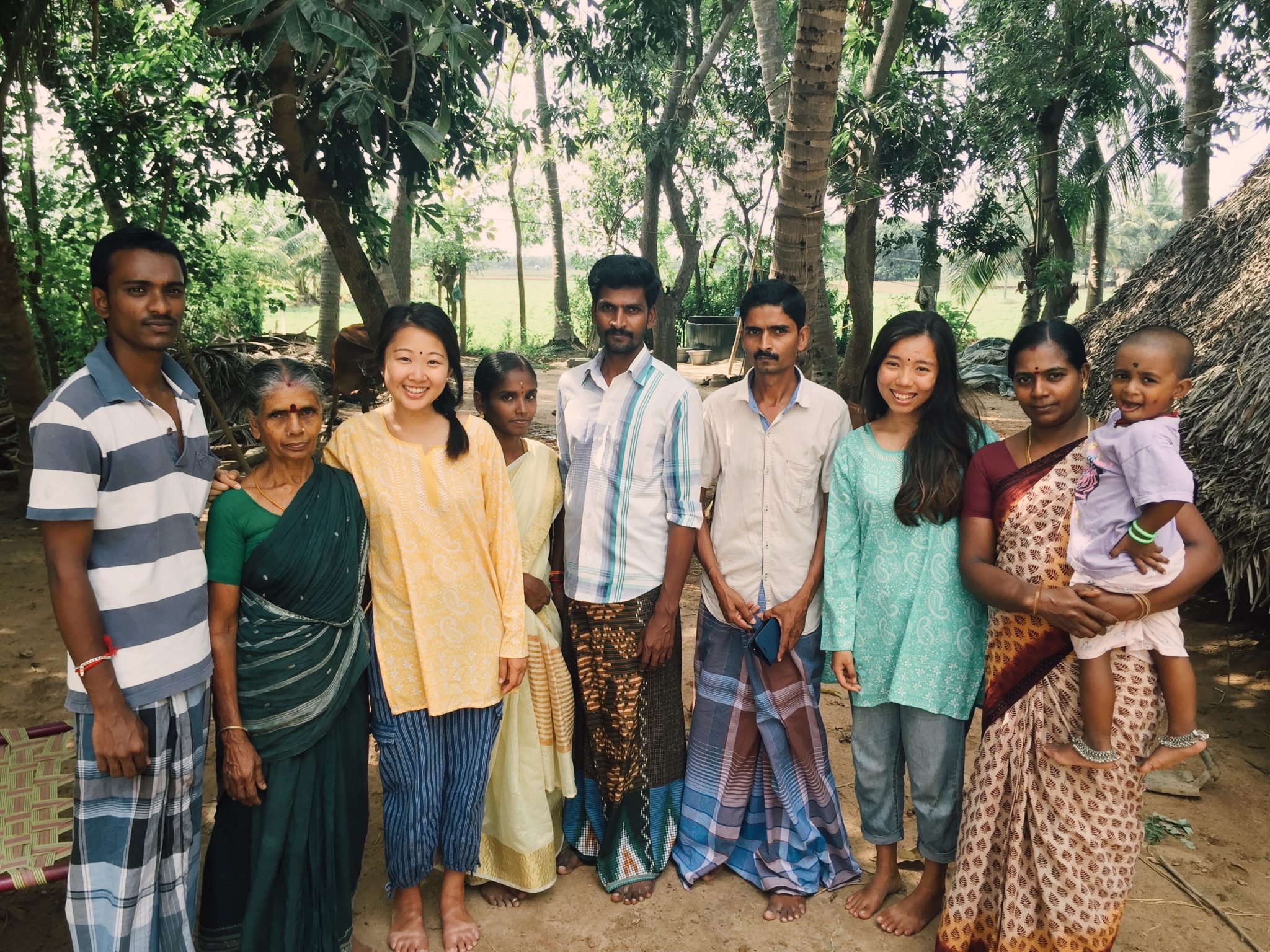
How have your learning journeys impacted your Singaporean participants?
Many locals have little to no personal encounters with migrant workers and most of what they know is based on what they read in the media or hear from third-party accounts. One participant shared that the learning journey helped to humanise the workers. Previously this participant only learned about them in the papers in terms of facts and statistics, but after attending their sharing and having dinner with them, faces were put to names, and their struggles felt all the more real. Another participant’s own unconscious biases were exposed after listening to the workers’ personal stories. While previously assuming that migrant workers only came to Singapore to make money and/or flee poverty, this participant realised that they too had interesting lives and stories; for instance, one of the workers was a UN peacekeeper and an army sergeant. To quote the participant after the session: “Why had I expected a ‘less interesting’ life from a migrant worker? Why was this surprising to me? What have I been told to expect? Why was I looking out for stereotypes?”
And how do the migrant workers themselves feel about having people to share their experiences and tribulations with?
In the words of a Bangaldeshi participant: “Whenever I share my story, I feel very good because people listen to me and try their best to understand and help. When we eat together, workers and Singaporeans, I also feel very happy because it feels like a family.” The friendship fostered between the local volunteers/participants and the workers also extends beyond the learning journeys—I have seen many instances of Singaporeans and migrant workers keeping in touch. Many go out for meals and become as close as family.
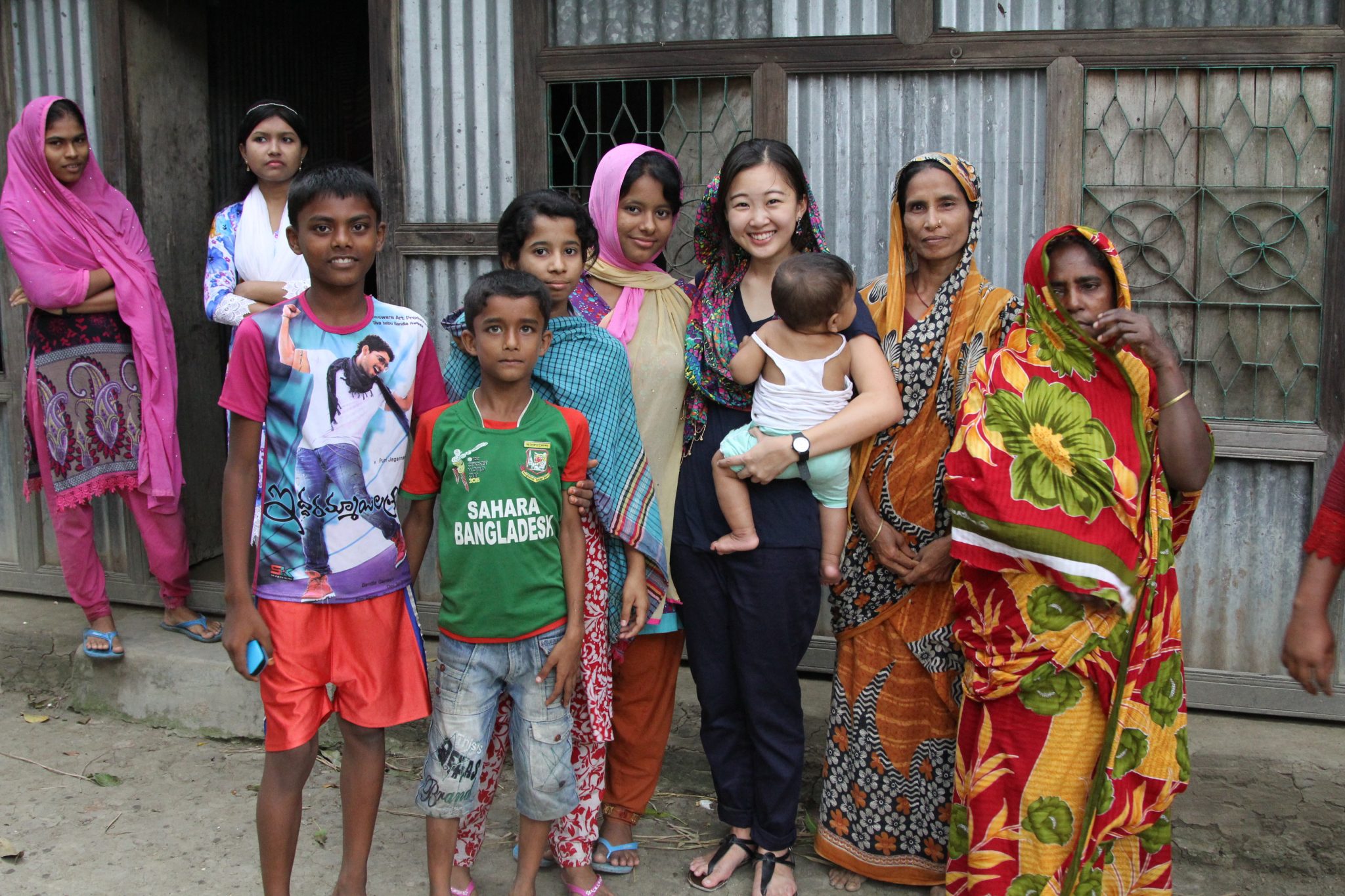
What are Migrant x Me’s immediate future plans?
We are a team of 17 volunteers, and different members are responsible for areas covering social media, facilitating, etc. Going into 2019, we hope to introduce our learning journeys to secondary schools and tertiary institutions. We will also continue to offer customised programmes for interested individuals or groups.
Who are some players in the social space that you look up to?
I admire the work of Empact, a skills-based volunteering platform, as well as Skillseed, which designs socially impactful experiential learning journeys.
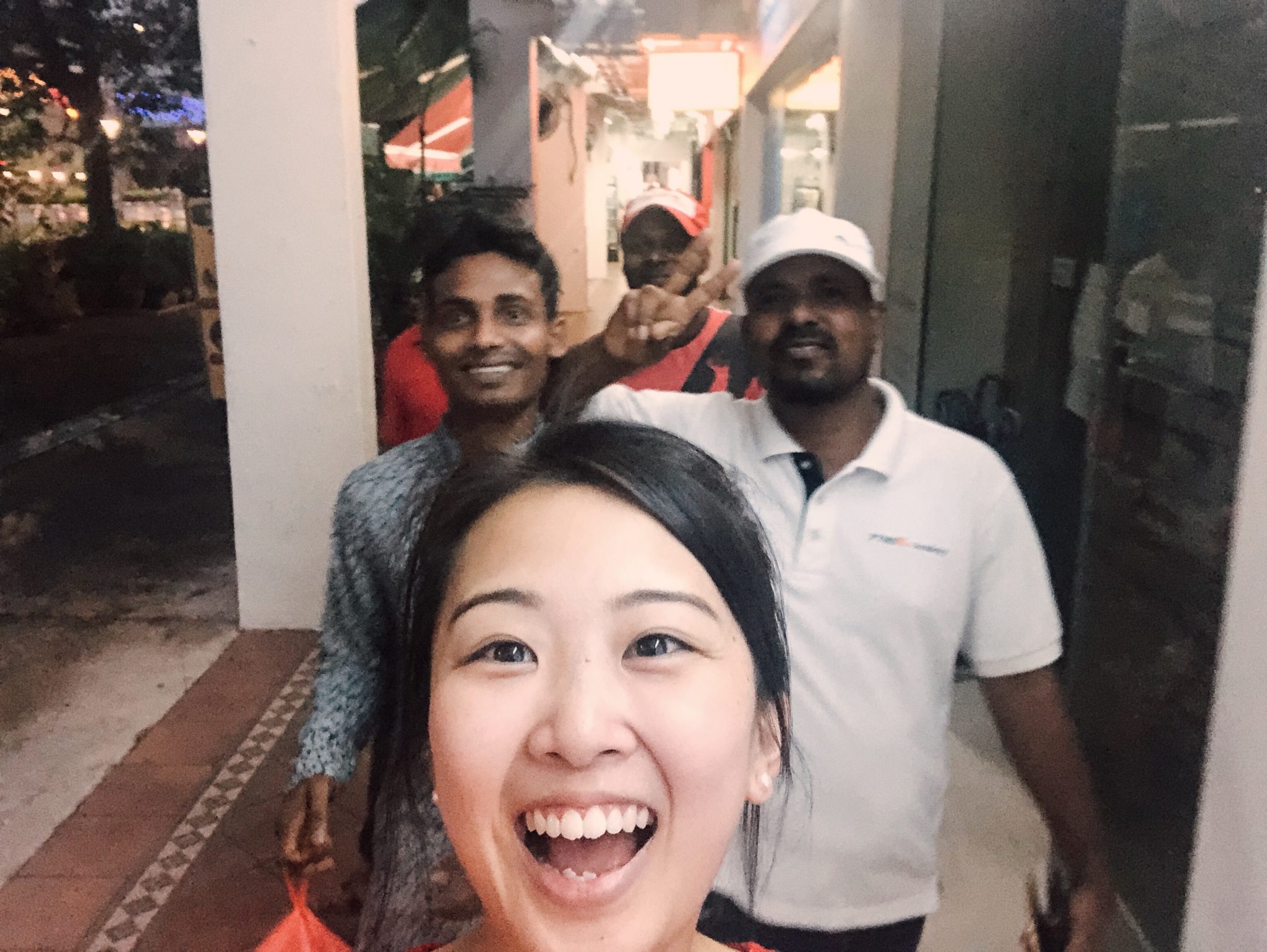
When you’re not busy with Migrant x Me, how do you like to unwind?
I don’t really get an off day—when not busy with Migrant x Me, I’d be engaged in freelance work or studying for my Master’s degree. But if I manage to steal away some time, I like to play sports or travel!
Finally, what do you think you’d be doing if you hadn’t started Migrant x Me?
I’d either be working in the social entrepreneurship scene or in a marketing and branding agency.
All photos courtesy of Isabel Phua.
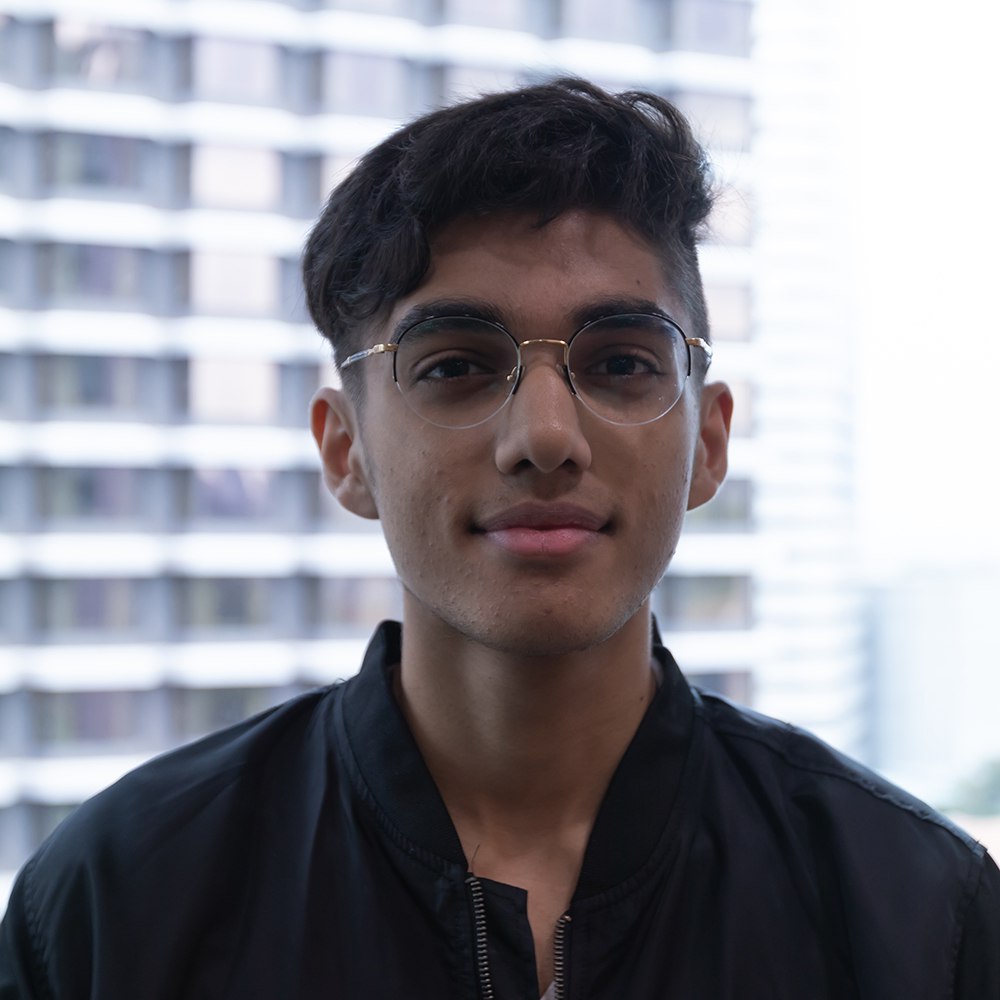 |
Ishan Singh is a second-year undergraduate at the Singapore Management University’s Lee Kong Chian School of Business, and an Editorial Assistant at Social Space Magazine. He spends any spare time he has rapping or producing music, and hopes to pursue a career in music. Passionate about the arts and writing, Ishan hopes to write articles and make videos that shed light on the importance of the arts in our communities. He can be reached at ishan.singh.2018@business.smu.edu.sg |








Comments